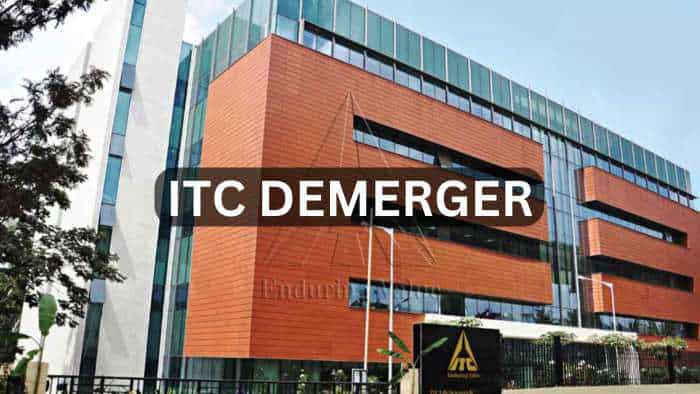Health insurance for senior citizen over 65 years - Explained in 10 points: Industry welcomes IRDAI move, but highlights need for elderly to read fine print
Health insurance for senior citizen over 65 years: Earlier, individuals could only purchase a new insurance policy till the age of 65, but with the new set of rules in place from April 1, anyone, regardless of age, can buy a new health insurance policy.
)
Health insurance for senior citizen over 65 years: The Insurance Regulatory and Development Authority of India (IRDAI) has removed the age limit of 65 years for individuals purchasing health insurance policies in order to broaden the market and promote adequate protection against healthcare expenses. This move by the insurance regulator represents a departure from the traditional constraints that prevented individuals from obtaining comprehensive coverage.
By eliminating the maximum age limit for purchasing health insurance plans, IRDAI hopes to foster a more inclusive and accessible healthcare ecosystem, ensuring adequate protection against unexpected medical expenses.
Earlier, individuals could only purchase a new insurance policy till the age of 65, but with the new set of rules in place from April 1, anyone, regardless of age, can buy a new health insurance policy.
In a recent gazette notification, IRDAI said, "insurers shall ensure that they offer health insurance products to cater to all age groups. Insurers may design products specifically for senior citizens, students, children, maternity, and any other group as specified by the Competent Authority."
Also, insurers have been told to offer health policies to individuals with pre-existing medical conditions of any kind.
Health Insurance Policy for senior citizen: New rules in 10 points
1) Even those above 65 years of age will now be able to buy health insurance easily, as the age gap on health insurance policy has been removed.
2) IRDAI has directed health insurance companies to come up with special policies keeping senior citizens in mind and also to create a robust system for quick disposal of complaints related to their policies.
3) The move will help senior citizens get cashless treatment easily in hospitals.
4) IRDAI has also asked health insurance companies to come up with special health insurance policies pertaining to maternity and for students and children.
5) Health insurance companies will no longer be able to refuse coverage to people suffering from pre-existing medical conditions like cancer, heart or kidney failure, AIDS etc.
6) As premiums for a special policy can be higher than a normal policy, the policy holders will have the option to pay the premium in installments.
7) There will be no cap on the treatment of AYUSH i.e. Ayurveda, Yoga, Naturopathy, Unani, Siddha, Homeopathy, and one can get coverage for the entire sum insured.
8) IRDAI has also reduced the waiting period for new policy holders from 48 months to 36 months. Now all, pre-existing health conditions will be covered after 36 months – whether the policy holder has disclosed the disease at the time of taking the policy or not.
9) Until now, insurance companies not just cancelled claims on non-disclosure, but also cancelled the entire policy. Now the moratorium period — the duration after which the insurer cannot deny the claim provided it is not a fraudulent claim — has been reduced from 8 years to 6 years.
10) According to IRDAI, the rule has been implemented from April 1, 2024.
Health insurance for senior citizen over 65 years: Industry welcomes move
Siddharth Singhal, Business Head - Health Insurance, Policybazaar.com, welcomed the move but added that senior citizens should exercise caution and read the fine print before buying their health insurance policy. He said, “The removal of the age cap on health insurance policies by the regulator marks a significant step towards ensuring equitable access to healthcare for senior citizens. This move offers elderly policyholders the opportunity to avail comprehensive health insurance coverage without being restricted by age-based limitations. However, it's advisable for senior citizens to inquire about waiting periods when purchasing a policy and understand how it may affect coverage for pre-existing conditions. Moreover, senior citizens should be aware of the coverage features and exclusions of the health insurance policies they intend to purchase. It's essential to carefully review policy documents including any capping such as room rent capping, co-payment requirements, and sub-limits on specific treatments. They must clarify any doubts with the insurer to ensure that there is no discrepancy and they fully understand the terms and conditions of their policy.”
Sharad Mathur, Managing Director & Chief Executive Officer, Universal Sompo General Insurance Company Ltd, sees it as a move that will help take India one step closer to its goal of achieving universal health care for all by 2030. He says, "By removing the age limit of 65 years for new health insurance policies, IRDAI has extended accessibility to health insurance for everyone, ensuring individuals can obtain comprehensive coverage regardless of age. Furthermore, the insurance regulator has directed coverage for pre-existing medical conditions, strengthening policyholders’ insurance protection. This move is commendable, benefitting both senior citizens and working adults caring for ageing parents. Not only will it improve access to quality healthcare services, but also encourage more Indians to secure their loved ones against serious medical conditions and illnesses alike. Besides, treatments under alternative medical systems will also be covered up to the sum insured amount, granting policyholders flexibility in choosing their preferred treatment options. From the standpoint of insurers, the amendment has unlocked a new world of possibilities when it comes to product design, enabling insurance companies to create new health products tailored precisely to diverse customer needs. These developments should ultimately serve the interests of senior citizens and take India one step closer to its goal of achieving universal health care for all by 2030."
Sumit Bohra, President of Insurance Brokers Association of India (IBAI), sees it as a great opportunity to tap an underserved market, and adds, “It's a welcome move by the regulator to remove the entry age barrier of 65 years for purchasing the health insurance cover. Although having said that it would be left to the insurers to design the products which is suitable to this age group. For instance, the new product should certainly cut down on the waiting period for pre-exiting disease or a graded claim pay out should happen in first three years and full claim post four years of continuous renewal. The Senior Citizen Health Insurance market is quite huge — one that either has no coverage or poor coverage in terms of smaller sum insured which is not enough to foot the current hospital bills. This is a great opportunity to innovate and penetrate the underserved market.”
Anuj Parekh, Cofounder and CEO at Bharatsure, welcomes the move by IRDAI, but deems it necessary to align insurer interests with the needs of senior citizens in order to ensure comprehensive and equitable coverage across. He says, "IRDAI's decision to remove age restrictions for entry into health insurance policies is indeed a step towards inclusivity in the insurance sector. However, it's essential to acknowledge that insurers may not be enthusiastic about catering to the age bracket above 65 years. Even if they do, the terms and conditions of such policies may not be entirely favourable to the customer. For instance, while a 70-year-old individual may now have the opportunity to purchase health insurance for the first time, they will likely encounter stringent terms, exclusions, and possibly high premiums. It's a reality that the 65-plus age group often comes with pre-existing conditions, prompting insurers to carefully evaluate the profitability, sustainability, and scalability of policies for this demographic. In light of these considerations, individuals seeking health insurance post-retirement may find it advantageous to continue with employer-offered health insurance, where insurers can provide more competitive premium rates and favorable policy conditions. Ultimately, while IRDAI's move promotes access to insurance for older age groups, it also underscores the importance of aligning insurer interests with customer needs to ensure comprehensive and equitable coverage across all demographics."
Prasun Sikdar, MD and CEO at ManipalCigna Health Insurance, highlights the crucial aspect of "peace of mind" that this would bring to senior citizens over 65, and says, "We welcome the transformative stride taken by the IRDAI towards creating inclusivity in healthcare ecosystem. The removal of the age cap on health insurance policies will provide senior citizens with complete peace of mind, knowing that they have access to quality healthcare when they need it most during the golden years of their life."
Sikdar also informs of a senior-citizen-specific plan launched by his insurance company, saying, "At ManipalCigna, we stand committed to helping seniors live their best lives, and to do so recently we had launched 'Prime Senior' plan that gives flexibility with lower waiting periods and provides coverage for pre-existing disease conditions from 91st day onwards. Thus understanding the evolving needs of seniors and the rising medical inflation, we welcome this pivotal change, recognizing it as an opportunity to extend our unwavering support to the elderly in safeguarding their health and well-being."
Also Read - Insurance regulator IRDAI abolishes age restriction on health insurance
Get Latest Business News, Stock Market Updates and Videos; Check your tax outgo through Income Tax Calculator and save money through our Personal Finance coverage. Check Business Breaking News Live on Zee Business Twitter and Facebook. Subscribe on YouTube.
RECOMMENDED STORIES

Top 7 Mutual Funds With Highest SIP Returns in 1 Year: Rs 33,333 monthly SIP investment in No. 1 scheme has generated Rs 4.77 lakh; know about others too

Sukanya Samriddhi Yojana vs PPF: Rs 1 lakh/year investment for 15 years; which can create larger corpus on maturity?

Top 7 Mid Cap Mutual Funds With Highest SIP Returns in 10 Years: Rs 13,333 monthly SIP investment in No. 1 fund is now worth Rs 67,61,971

Rs 4,000 Monthly SIP for 33 years vs Rs 40,000 Monthly SIP for 15 Years: Which can give you higher corpus in long term? See calculations

EPS Pension Calculator: Age 32; basic salary Rs 22,000; pensionable service 26 years; what will be your monthly pension at retirement?

SBI 444-day FD vs PNB 400-day FD: Here's what general and senior citizens will get in maturity on Rs 3.5 lakh and 7 lakh investments in special FDs?
05:29 PM IST










 Health Insurance Premium Calculator: Age 30 years, insurance amount Rs 10 lakh; which option can save up to 18% amount- 1-year premium policy or multi-year policy?
Health Insurance Premium Calculator: Age 30 years, insurance amount Rs 10 lakh; which option can save up to 18% amount- 1-year premium policy or multi-year policy? GST on term life insurance premium, senior citizen's health coverage may be exempt
GST on term life insurance premium, senior citizen's health coverage may be exempt Faster Claim Settlements: Health insurance gets consumer-friendly with new rules
Faster Claim Settlements: Health insurance gets consumer-friendly with new rules Avoid these 5 common mistakes to prevent health insurance claim rejection
Avoid these 5 common mistakes to prevent health insurance claim rejection Star Health Insurance launches India's first insurance policy in Braille; know its details
Star Health Insurance launches India's first insurance policy in Braille; know its details